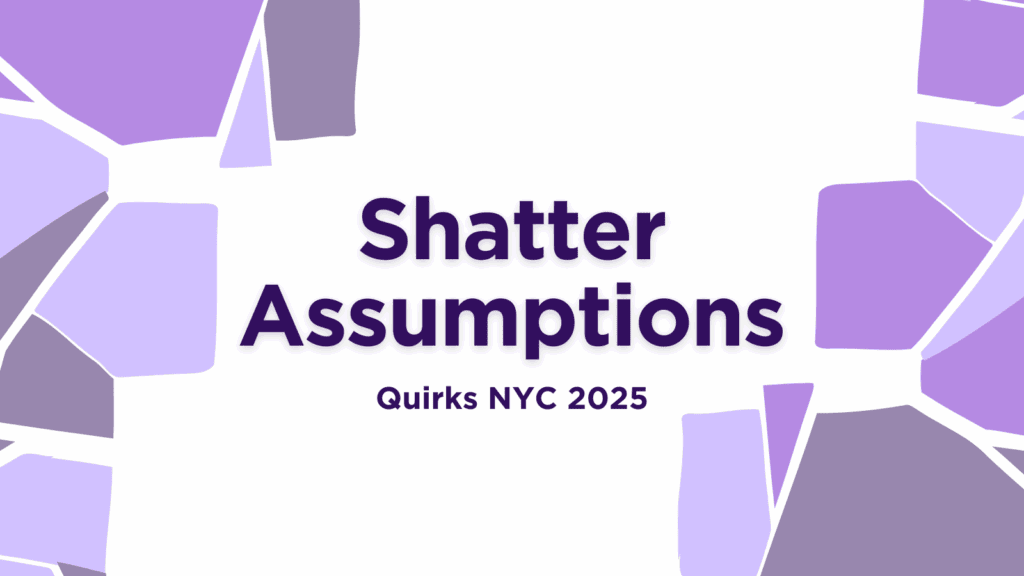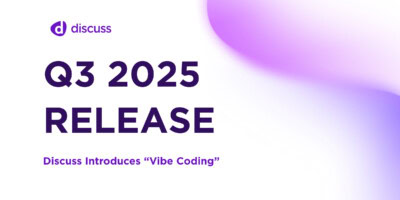From Scripts to Conversations: How AI Moderated Research Is Breaking the Survey Mold

In a world that thrives on personalization and agility, traditional surveys can feel like relics of the past. Rigid, static, and often uninspiring, they force participants into boxes rather than inviting genuine conversations. Enter AI moderated research—an emerging solution that’s rewriting the script (literally).
At the forefront of this evolution is adaptive interviewing: AI-driven technology that mimics the fluidity of real human conversation while maintaining research objectives. The result? Deeper insights, more authentic responses, and an elevated research experience.
From Linear to Adaptive
Traditional surveys follow a fixed path. Once a respondent begins, they’re steered through a predetermined flow regardless of tone, sentiment, or context. This format can limit the richness of the data collected—especially when respondents feel misunderstood or disengaged.
Research from the Pew Research Center has shown that survey response rates declined from 36% in 1997 to just 6% in 2018. One reason? Many participants find surveys repetitive, impersonal, and disconnected from how people actually communicate.
AI moderated interviews flip this model. Rather than sticking to a script, AI dynamically adapts its questions based on participant input.
It might notice hesitation and ask a clarifying question. It may detect excitement and dig deeper. It listens, responds, and adjusts—just like a skilled human moderator would.
Conversational AI: More Than a Chatbot
Don’t confuse this with a glorified chatbot. AI moderation tools like Discuss Interview Agent are built specifically for qualitative research.
They understand nuance. They pick up on sentiment shifts in tone, word choice, or pacing. They probe like a trained interviewer would—but without introducing human bias or fatigue.
For example, when testing a new product concept, a static survey might ask:
“Do you like this idea?”
With only yes/no/maybe options, you’re left with shallow data.
An AI interview, however, might detect uncertainty in a participant’s response and ask:
“What concerns you about this idea?”
This follow-up doesn’t just collect a preference—it reveals motivations, fears, and desires that help guide better decisions.
Why Adaptive Interviewing Matters
Adaptive interviewing isn’t just more elegant—it’s more effective:
- Engagement stays high – Participants feel heard, not herded. According to GreenBook’s 2024 GRIT report, engagement directly correlates with data quality, with “high engagement” studies producing up to 40% more actionable insights.
- Data quality improves – Responses capture thought, emotion, and context rather than pre-selected boxes.
- Unexpected insights emerge – The AI can explore paths traditional surveys can’t predict, uncovering themes researchers didn’t anticipate.
This matters most in early-stage exploration or when testing messaging, branding, and positioning—areas where nuance is everything.
Scaling Without Sacrificing Depth
One of the greatest challenges in qualitative research is balancing scale and depth.
With human moderators, it’s difficult to run dozens of interviews quickly without burnout or inconsistency. AI removes this tradeoff.
AI moderated interviews run asynchronously. Dozens—or hundreds—of participants can engage in deep, qualitative conversations in parallel, without the need to schedule live sessions. Each conversation is consistent, neutral, and deeply insightful.
McKinsey & Company notes that organizations that scale customer insight gathering are 2.4 times more likely to report revenue growth above their industry average. That’s the value of turning depth into something that’s not just achievable, but scalable.
Beyond the Bias
Another benefit? Reduced moderator bias.
Human moderators, even with years of training, may unintentionally influence responses through tone, body language, or framing of questions. AI, however, operates without subconscious cues.
This neutrality is particularly important in emotionally sensitive research, where subtle human reactions might alter the direction or candor of responses.
And because AI can be trained to follow specific research frameworks, every participant’s experience is equally rigorous and equally unbiased.
AI Moderated Research Use Cases: Where This Really Shines
Adaptive, AI-led conversations excel in areas where emotional nuance drives decision-making:
- Message Testing – Uncover the emotional triggers behind why certain copy, slogans, or creative elements resonate more strongly than others.
- Product Concept Validation – Move beyond whether a consumer “likes” an idea to understanding what excites or worries them about it.
- User Experience Feedback – Identify moments of friction and delight with enough detail to inform immediate product refinements.
- Brand Positioning – Learn which narratives feel authentic to audiences in different markets or cultures.
In all these areas, depth matters—but so does speed. AI enables both.
From Qual to Quant—and Back Again
As more researchers turn to AI moderated research, the line between qualitative and quantitative continues to blur.
Adaptive interviews can produce quant data—metrics like preference rankings, sentiment scores, and frequency of keyword mentions—alongside qual insights, like personal stories or emotional drivers.
This “blended” approach means you can see what people think and why they think it, all in one process.
A Smarter Workflow for Researchers
Here’s what a typical AI moderated research project might look like:
- Set Your Objectives – Identify the exact decisions the research should inform.
- Train the AI – Feed the AI moderator your script framework, objectives, and brand tone guidelines.
- Run Interviews in Parallel – Launch your study and let dozens (or hundreds) of participants engage at their convenience.
- Analyze in Hours – Review AI-generated summaries, sentiment breakdowns, and key theme extraction.
- Layer in Human Insight – Researchers interpret the results, connect them to business context, and turn them into actionable recommendations.
The Future Is Conversational
In the same way email didn’t kill in-person meetings but made them more efficient, AI moderated research isn’t replacing human researchers—it’s expanding their reach.
By removing the bottlenecks of scheduling, transcription, and manual probing, AI allows research teams to spend more time interpreting insights and less time collecting them.
At Discuss.io, we believe that smart conversations drive smart decisions. Our AI Interview Agent was designed to help researchers break free from the limitations of static surveys and lean into more fluid, responsive, and revealing dialogues.
It’s time to retire the rigid survey. Let’s start having better conversations—at scale.
Ready to unlock human-centric market insights?
Related Articles

Speed Kills: AI Saves Time. Use That Time Wisely.
At Quirks NYC, Discuss Co-Founder Jim Longo joined industry legend and Executive Chairman of i-Genie.AI Stan Sthanunathan to explore how…
At Quirks NYC, Discuss Co-Founder Jim Longo joined industry legend and Executive Chairman of i-Genie.AI Stan Sthanunathan to explore how…

Garbage at Scale: Why AI-Only Qual Research Misses the Mark
At Quirks NYC, Discuss Co-Founder Jim Longo took the stage with Stan Sthanunathan, a legend in the insights industry and…
At Quirks NYC, Discuss Co-Founder Jim Longo took the stage with Stan Sthanunathan, a legend in the insights industry and…

From Research Projects to Insight Flows: Vibe Coding Is Rewiring the Way We Learn From Customers
By Adam Mertz, Chief Growth Officer at Discuss In my first post in this series, I explained vibe coding: originally…
By Adam Mertz, Chief Growth Officer at Discuss In my first post in this series, I explained vibe coding: originally…



